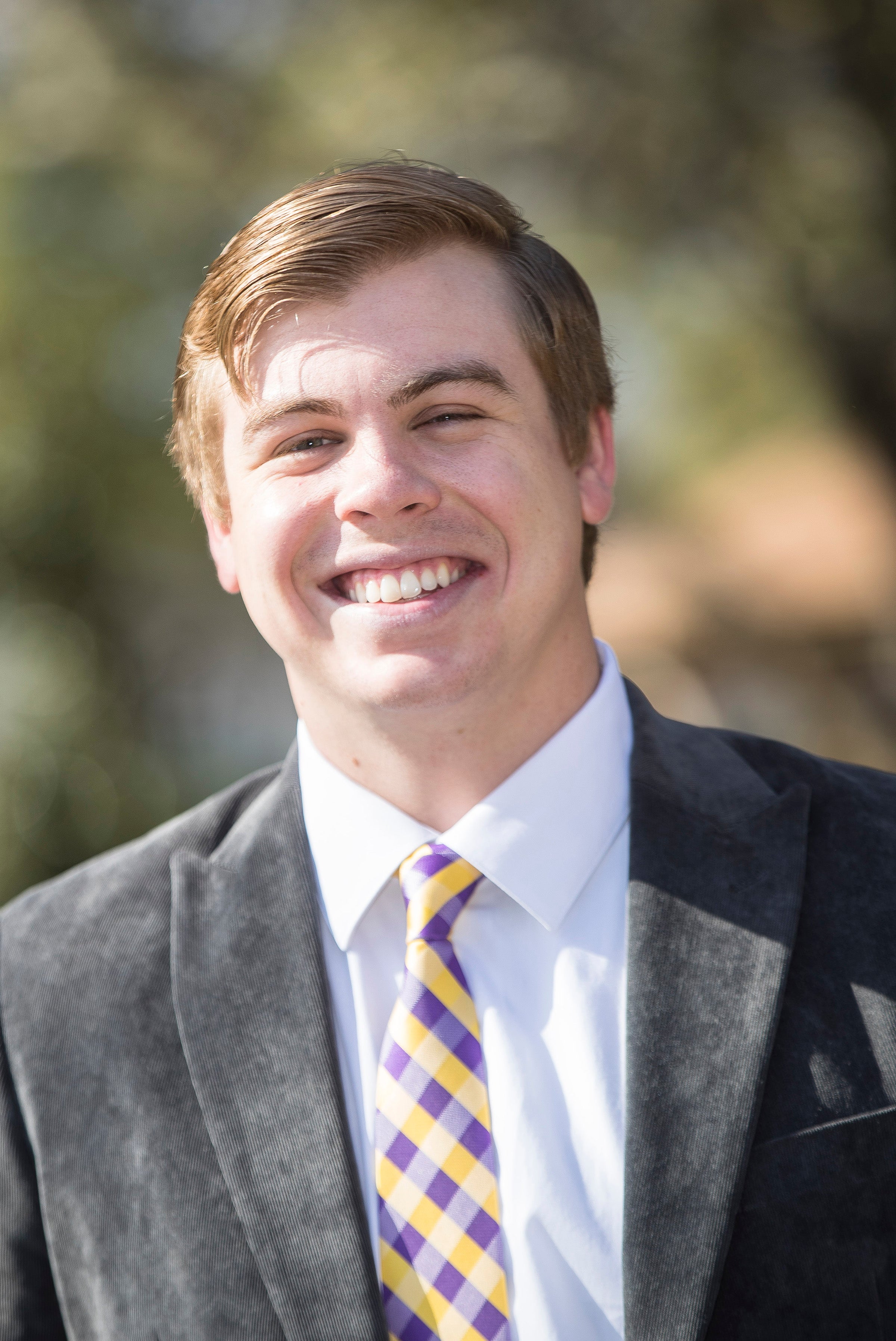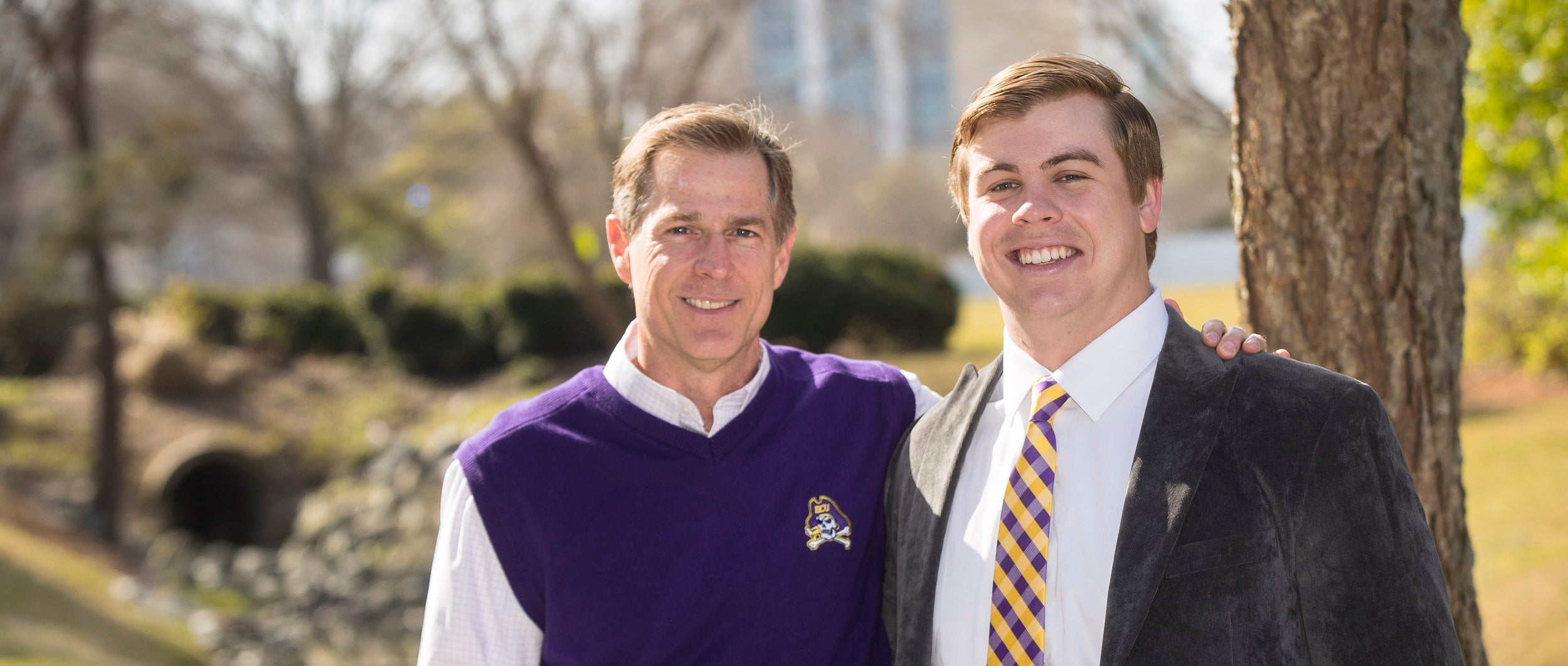Graduate student earns ECU’s first Schweitzer Fellowship in public health

ECU graduate student Gabriel Beattie-Sergio has received a 2018 Schweitzer Fellowship, the university’s first such award in the area of public health. (Photos by Cliff Hollis)
Graduate student Gabriel Beattie-Sergio has earned ECU’s first-ever Schweitzer Fellowship in public health, to create and sustain a project aimed at determining and eliminating different factors that contribute to childhood asthma. His designation through the program is as a BCBSNC Foundation Schweitzer Fellow.
Beattie-Sergio’s work will focus on victims who were impacted by the 2016 Hurricane Matthew, live in substandard housing and have children with asthma. A large part of Beattie-Sergio’s time will be dedicated to conducting in-home (field) visits, interviewing families and conducting environmental health and housing assessments.
“I’ll be gaining experience with underserved populations and minorities, and seeing firsthand what environmental factors can contribute to illnesses,” said Beattie-Sergio, who is working under the mentorship of Dr. Greg Kearney, assistant professor in the Department of Public Health.
Beattie-Sergio said earning the fellowship is a chance for him to get a first-hand look at some of the topics he has learned about in the classroom. Kearney said it represents a unique opportunity to work in the trenches.
“Gabe demonstrates an eagerness to learn and help people, so I think this will be a great experience for him,” said Kearney, program director of environmental and occupational health. “As his mentor, I hope to provide him with guidance that will allow him to apply his public health education and develop skills along the way.”
Beattie-Sergio’s work will leverage current research projects and partnerships through ECU’s Department of Public Health, including the Medical-Legal Partnership, a collaborative project between the Brody School of Medicine, Department of Public Health, Vidant Medical Center and Legal Aid of N.C. The project was funded last year by Blue Cross Blue Shield Foundation of North Carolina.
“The skills he will develop will focus on identifying and reducing children’s exposure to environmental triggers in rental housing and interviewing and assisting patients in overcoming the social determinants of health by integrating free legal services,” Kearney said.
The research hits particularly close to home for Beattie-Sergio, who is pursuing both a master’s of public health in epidemiology and a master’s of science in environmental health. He suffered from childhood asthma and hopes his work will help address the illness in North Carolina’s eastern region, which has the state’s highest rates of childhood asthma.
“The fellowship allows me to meet with families that I normally wouldn’t and talk with the children about how you can still live an active life with asthma,” Beattie-Sergiosaid. “I tell them that if I had a program like this one in my area growing up it would have made living with asthma as a kid much more enjoyable.”
Through the project, families get referred to the Eastern Carolina Asthma Prevention Program (ECAPP) from Vidant Medical Center’s Emergency Department.
“From there, if the family decides to have an environmental assessment conducted, Dr. Kearney and I go to the home and look at factors in the house that can be contributing to the child’s asthma — mold, roaches etc.,” Beattie-Sergiosaid.
Based on their findings, the case can be referred to Legal Aid to pursue action to get the living conditions improved by landlords and property owners.

Beattie-Sergio, right, will conduct childhood asthma research through a 2018 Schweitzer Fellowship, under the mentorship of Dr. Greg Kearney, assistant professor in the Department of Public Health.
Beattie-Sergio’s idea for the Schweitzer project will coincide with the public health department’s ongoing research.
“It seemed like it dovetailed perfectly with our work,” Kearney said. “Gabe will be experiencing how health care, environmental health and public health come together in a real-world setting.”
Beattie-Sergio’s project also meets the criteria for sustainability, which is a main characteristic used to choose the winning Schweitzer Fellow applications.
Since 1994, the North Carolina Albert Schweitzer Fellowship Program has supported 425 fellows from many academic disciplines through funding from various foundations, academic institutions and individual donors. Last year’s 23 North Carolina fellows join approximately 240 others nationwide.
Fellows all work with mentors at one of 14 program sites across the U.S. and in Lambaréné, Africa, where physician-humanitarian Dr. Albert Schweitzer founded a hospital in 1913.
“In general, I believe public health is naturally embodied in the work that Dr. Schweitzer accomplished while he was in Africa,” Kearney said, “so it’s a good opportunity for public health students to apply for the fellowship.”
-by Spaine Stephens, University Communications